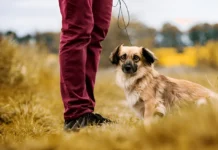Think you know your world geography? Think again. The Worldle Map Guessing Game isn’t just about pointing to countries on a map—it’s a daily brain teaser that’s taken social media by storm and quietly turned casual players into geography buffs. But what is it about this game that keeps people coming back, day after day? Let’s dive into the pixelated world of mystery maps and discover what makes Worldle so oddly irresistible.
Basics Of Worldle Map Guessing Game
First things first—what exactly is Worldle (not to be confused with Wordle, its word-based cousin)?
Worldle is a geography-based guessing game where you’re shown the silhouette of a country and must guess what it is. Simple enough, right? Well, here’s the twist: if your guess isn’t correct, the game gives you directional hints—think “northeast” or “south” along with the distance (in kilometers) to the actual country. You get six tries, and each one teaches you a little more about the world.
There are also variations—some versions use territories, regions, or even obscure islands—just to keep things spicy. If you think you’ve got what it takes to spot The Gambia from just an outline, Worldle is your game.
Psychology Behind Worldle Map Guessing Game Addiction
Ever wonder why you’re so hooked on Worldle?
A lot of it comes down to our brain’s natural love for problem-solving and pattern recognition. That little country outline? It becomes a puzzle. And with each clue—each directional arrow—you feel like a digital detective closing in on the culprit.
There’s also the thrill of the “aha!” moment—that sweet reward when you finally crack it. That’s dopamine at work, reinforcing the desire to come back and do it all over again tomorrow.
And let’s not forget the social aspect. Sharing your score (or streak) on Twitter or Reddit becomes part of the experience. You’re not just solving a puzzle—you’re joining a global conversation.
Tips & Tricks For Solving Worldle Map Guessing Game Puzzles
Feel like your guesses are just shots in the dark? Let’s turn that around. Here are a few strategies that seasoned Worldle players swear by:
1. Start With Obvious Shapes
Countries like Italy, Japan, or Australia have distinctive outlines—if you see one of those, lucky you.
2. Use The Distance Clues Smartly
Don’t ignore those kilometer indicators. If you guessed Brazil and it tells you the answer is 2000km northeast, pull up a mental map (or Google Maps after the game if you’re really curious) and triangulate your next guess.
3. Brush Up On Borders
Knowing who borders who is incredibly useful. Missed Ethiopia but landed close? Think about the Horn of Africa region for your next shot.
4. Rotate The Map Mentally
Some countries are flipped or shown without context. Try to imagine the shape rotated or mirrored—it helps more than you think.
5. Don’t Sleep On Island Nations
Those tiny specs on the map? They can be real curveballs. Countries like Fiji or Seychelles pop up often, and their shapes are trickier to place. Remember, it’s not about getting it right on the first try. It’s about learning, adjusting, and closing in like a map-sleuthing pro.
Why People Are Obsessed With Worldle Map Guessing Game
It’s a fair question: Why has Worldle become a mini-global sensation? For one, it’s easy to jump into but surprisingly challenging to master. You don’t need to be a geography teacher to play—but after a few games, you might feel like one.
It also scratches that sweet spot between fun and educational. You’re not just killing time—you’re building actual knowledge. Who knew guessing maps could be a productive hobby?
Then there’s the dopamine factor again. Like its wordy cousin Wordle, Worldle gives you a quick hit of satisfaction. Win or lose, it’s over in minutes, but it stays on your mind for hours.
Challenges & Controversies In Worldle Map Guessing Game
As harmless as a map game sounds, Worldle hasn’t been without its share of controversies. Some critics have pointed out issues with political boundaries—for instance, displaying disputed territories or maps that exclude certain regions. These concerns, while often unintentional on the developer’s part, can raise eyebrows and spark debate.
Another challenge? Difficulty balance. Some days you’ll get France. Other days, you’re staring at the outline of some remote Pacific island, and even seasoned players are left scratching their heads. Despite these bumps, most fans agree: Worldle is more about curiosity and discovery than politics or precision.
Other Similar Country Guessing Games To Try Out
If you’ve caught the Worldle bug, you’ll be glad to know it’s not alone in the geography game genre. Here are some other gems to try:
Globle
Instead of silhouettes, Globle lets you guess any country, and it tells you how close (temperature-wise) your guess is to the correct one.
GeoGuessr
This one drops you in a random place in the world using Google Street View. Your job? Figure out where you are based on surroundings. It’s as immersive as it gets.
Sporcle Geography Quizzes
From naming all the countries to identifying flags, Sporcle’s quizzes are a great training ground for Worldle enthusiasts.
Flagle & Capitalle
These spinoffs focus on flags and capital cities, respectively. Because, hey, geography is more than just shapes.
With a growing list of options, there’s always a new way to flex your mental map muscles.
FAQs – Worldle Map Guessing Game
Q: Is Worldle free to play?
Absolutely! You can play it online with no cost and no downloads.
Q: Can I play past Worldle puzzles?
Some browser extensions or clone sites let you access older maps, but the official version focuses on one puzzle per day.
Q: Do I need to sign up to play?
Nope. Just head to the site and start guessing—no account needed.
Q: Is there a mobile app?
Worldle isn’t officially available as a standalone app, but it works great in your mobile browser.
Q: How accurate are the distance hints?
They’re based on straight-line (as-the-crow-flies) distances from your guess to the correct country, so they’re quite helpful if you think in map terms.
Conclusion
Worldle isn’t just a daily distraction—it’s a surprisingly thrilling dive into global geography. Whether you’re in it for the learning, the challenge, or just the pure satisfaction of nailing Djibouti on your second try, there’s something undeniably engaging about this little map-based game.
And the best part? It makes you smarter without even trying. So next time you’re sipping your morning coffee or winding down after a long day, why not crack open a new silhouette and take your brain on a trip around the world?
































